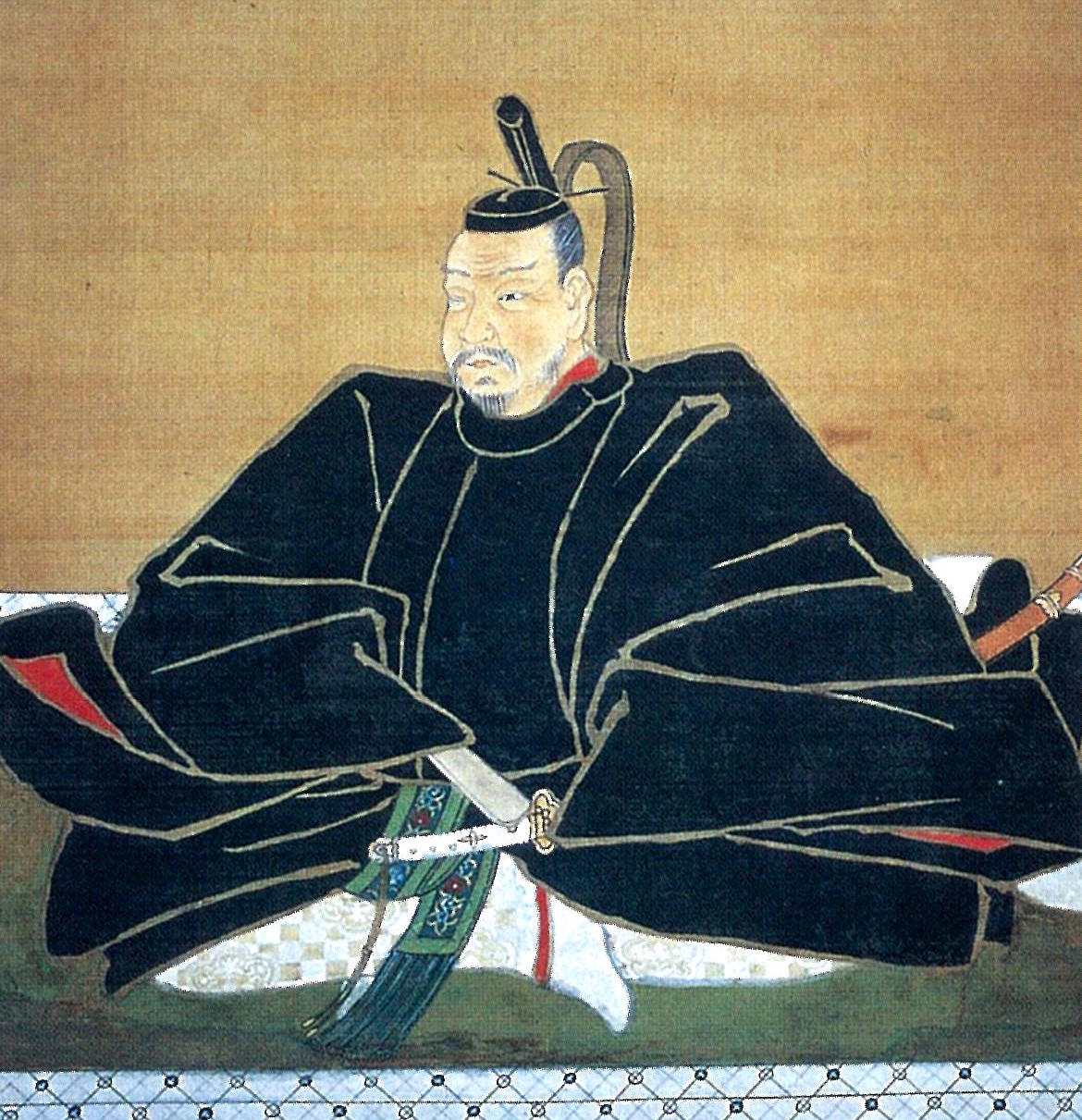
Samurai traditionally have several names. (learn more) They change their name to fit different situations and life stages. This was normal within the Samurai rank.
Date Masamune 伊達 政宗 was a regional strongman of Sengoku period through early Edo period. Heir to a long line of powerful daimyo in the Tōhoku region, he went on to found the modern-day city of Sendai 仙台. An outstanding tactician, he was made all the more iconic for his missing eye, and Date was often called Dokuganryū 独眼竜, or the “one-eyed dragon”. Even Toyotomi Hideyoshi 豊臣 秀吉 was afraid of his military braveness. The transition of his famous names are as follows.
梵天丸→伊達藤次郎政宗→伊達権中納言藤原朝臣政宗
⒈ 梵天丸
He was born in 1567, and was named Bontenmaru 梵天丸. The story was like this. His mother Yoshihime 義姫 requested Saint Chōkai 長海上人 in Kameokamonjyu temple 亀岡文殊堂 大聖寺 to have a boy who is encouraged to elevate their literary and military arts as well as loyalty to his master and filial piety. Saint Chōkai went up Mount Yudono 湯殿山, prayed with soaking Heisoku 幣束 in hot water in the mountain, set down and enshrined the Heisoku upon the roof of Yoshihime’s bedroom. One night, a white hair old monk appeared in her dream and asked her to stay at her womb. Yohihime took counsel with his husband, Date Terumune 伊達 輝宗, and got his order that she would follow the monk if he appeared again. At the next night the monk appeared in her dream again, and she permitted to stay at her womb. The monk gave her the Heisoku, said “Become pregnant and bring up a boy” and disappeared. She became pregnant very shortly after the dream and had a baby boy. In the Shugendō 修験道 Heisoku is called “Bonten”. His childhood name, Bontenmaru, comes from this story.
⒉ 伊達 藤次郎 政宗
Myōji 名字, family name
nnnnnnnn伊 達
reading: da, te
meaning: ruler, company
Kemyō 仮名, pseudonym
nnnnnn nn藤 次 郎
reading: tō, ji, rō
meaning: westria, second, guy
Imina 諱, true name
nnnnnnnn 政 宗
reading: masa, mune
meaning: correct by force, leader of clan
Date 伊達 was the place name, originally written “因達” and called Idate or Idachi. One theory suggests that the people who had a belief in Itate shrine 射楯神社 in Harima Province settled down and built Idate shrine 伊達神社 in the place nowadays called the Date region.
The beginning of the Date family dates from Date Tomoamune 伊達 朝宗. A samurai called Nyudo-nenzai 入道念西, identified as Tomomune in Nakamura 中村, manor Isa 伊佐荘, Hitachi Province won a fame in the battle of Oshu 奥州合戦 in 1189. He got a new land as a reward, the Date region, and changed his family name from Nakamura or Isa to Date in order to protest about the land ownership. Tomomune is thought to be a member of the Fujiwara clan, which influences Masamune. (described later)
Jirō 次郎 in his pseudonym “Tōjirō 藤次郎” comes from a traditional pseudonym of the Date family, directly translated “second guy”, but used for the heir because of its kanji character “Ji (次)” implying the heir written Atotugi 跡継, or 跡次. The pseudonym of his father Terumune is Sō-jirō 総次郎, his grandfather Harumune Jirō 次郎. The meaning of the kanji “藤” is that the guy is a member of the Fujiwara clan 藤原氏. Hence, Tōjirō means “a heir of Date family, a member of the Fujiwara clan”.
His Imina “Masamune 政宗” was named after his ancestor, DaizenDaibu-Masamune 大膳大夫 政宗, an originator of the Restoration of the Date family. The Date family traditionally had a custom to receive one character from the Shogun’s Imina. But Masamune didn’t receive it from the then Shogun, Ashikaga Yoshiaki 足利 義昭, because Yoshiaki had been exiled from Kyoto and lost the political power. If he requested a character from Yoshiaki, his Imina must be called Akimune 昭宗, not Masamune.
⒊ 伊達 権中納言 藤原 朝臣 政宗
Myōji 名字, family name
nnnnnnnn伊 達
reading: da, te
meaning: ruler, company
Kemyō 仮名, pseudonym
nnnnnnnn権中納言
reading: goncyūnagon
meaning: a vice counselor of the second rank in the Imperial court
Uji 氏, clan name
nnnnnnn藤 原
reading: fuji, wara
meaning: wisteria, field
Kabane 姓, hereditary title
nnnnnnn朝 臣
reading: a, son
meaning: the second title in imperial court
Imina 諱, true name
nnnnnnnn 政 宗
reading: masa, mune
meaning: correct by force, leader of clan
The third Shogun of the Tokugawa Shogunate or Tokugawa Bakufu 徳川 幕府, Tokugawa Iemitsu 徳川 家光 greatly respected Masamune. He called Masamune “the lord Date, a lofty, admirable man”. That is because Masamune served as a sponsor for Iemitsu to become a Shougun and was the distinguished samurai whom even his grandfather Tokugawa Ieyasu 徳川 家康 accepted. Whether it was the intention of Bakufu or not, the treatment of Masamune by Iemitsu himself was obviously beyond the degree of common practice, among those who were not hereditary or the original vassals of Tokugawa clan.
Iemitsu recommended Masamune as Gon-Chūnagon to the imperial court, and Masamune got the title. He may have called himself “Gon-Chunagon Fujiwara Ason Masamune 権中納言 藤原 朝臣 政宗” when visiting the Imperial inner court.
If you want to get your own samurai names like the above, click the bottom below. I can put your principle into a Samurai name according to the information you provide.




Leave a Reply